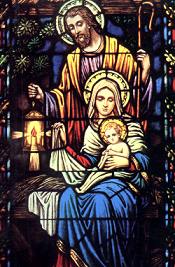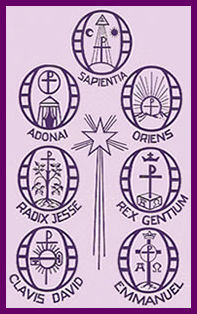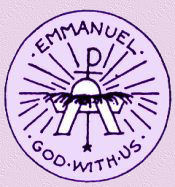
+ Necrology
 |
DUNCAN BASIL, pen-name of the
Cistercian Fr. Luke Harris, formerly ten years in the RAF.
Illustration; “Joystick”
in the thirty real-life incidents.
|
·
Thursday, 13 December 2012 11:53
December 12, 2012 : Father Luke Harris was
born in 1918 in Birmingham (England). He entered Mount St Bernard in 1948, made
his solemn profession in 1953 and was ordained priest in 1955. Father was 94
years old, had been in monastic vows for 62 years and 57 years a priest when
the Lord called him.
-- ---
----- Forwarded Message -----
From: Jude Tah ....
To: Nivard ...
Sent: Tuesday, 25 December 2012, 7:18
Subject: Happy Xmas
From: Jude Tah ....
To: Nivard ...
Sent: Tuesday, 25 December 2012, 7:18
Subject: Happy Xmas
Dear Nivard
It was great to hear from you. I was just thinking of sending you one. God to know you are keeping well with Donald, the Lord is certainly good to him. At this end we are all up and about except the Abbot and the Prior are under the weather with colds.
Were you able to show up at Luke's funeral? We had a funeral mass for here for him the say day he was laid rest at MSB and a handful of people turned up from Njindom despite the short notice on "Radio Evangelium", a radio network in the Ecclesiastical province of Bamenda, that is Buea , Bamenda, Kumbo and Mamfe.
Have a lovely day.
(Dom) Jude Tah ocso
Bamenda Abbey, Cameroon
Archive: The Catholic
Heralld
PAGE 10, 3RD JANUARY 1964
. ENGLISH
MONKS PIONEER IN AFRICA
FOUR Cistercians who left
Mt. St. Bernard Abbey, Coalville,
Leicester, three months ago, to start a new foundation at Mbengwi, West
Cameroun, are preparing accommodation for nine more monks expected in March.
The pioneer group– Fr. Luke Harris and three Brothers – is
at present living in temporary quarters at Mbengwi, where they have been given
288 acres of land for development. Fr. Harris is installing electricity and
supervising the Brothers in the task of getting farmland under cultivation and
starting the actual building work. It is planned to build a complete monastery.
'maintained chiefly by poultry and pig farming. The new arrivals in March will
include a Brother from Uganda, a novice with three priests from Nigeria, and
three English priests.
A novitiate for Africans will be
opened in the summer. This is the second Cistercian foundation in the Federal
Republic of Cameroun. The first was started in 1951 at Ohnut. East Cameroun.
When Fr. Luke and his pioneer band
arrived at Mbengwi, they received a warm welcome from the chiefs and people.
They had covered the last 300 miles of the journey "under their own
steam". the three Brothers taking turns oil a farm tractor with trailer
containing farm equipment. while Fr. Harris drove a Land Rover and trailer.
Progress was often little more than eight miles an hour.
Fr. Luke Harris, his pen name: “Duncan Basil.
1. Year
of Mystery by Basil Duncan (Sep 1995)
2. The
Trinity at Home: A Family Likeness by Duncan Basil (11 Nov 1999)
3. In
a Nutshell by Duncan Basil and Gillian Elias (11 Nov 2000)
4. Eyes
on the Lord: View of a Contemplative by Duncan Basil (11 Nov
1994)
e-Newsletter Janauary 03, 2001 (TLIG News)
3 Jan 2001 – In this mailing, a poem by Fr. Luke Harris OCSO is copied. Fr Luke is a
Cistercian monk from a monastery here in the UK which Vassula has ...
The Two Hearts
03 January
2001 19:33
Prayer requests
will, from now on, be copied at the end of forum mailings.
In this mailing,
a poem by Fr. Luke Harris OCSO is copied. Fr Luke is a Cistercian monk from a
monastery here in the UK which Vassula has visited more than once. Thanks to
Catherine Keightley for forwarding this item. Catherine prefaced the item with
the following: "Father Luke feels the poem might be too obsure for many
but he really loves Vassula's writings, ponders them and spreads them far and
wide."
I wrestle away
with Vassula's books in that I love reading them....... she seems to be
stressing especially the Three Persons, the Sacred and Immaculate Hearts and
the Holy Spirit. So maybe the title of "True Life in God" can sum it
up, thus-wise.
True Life can
only be the (Life-giving) Spirit, the Torrent of Living water that flows to us
through the blood of the Saviour's wounds and the tears of His Mother's as from
a double cascade.....
This I tried to
put into a poem but although it got a bit obscure, I
include it
here............. The destination of this 'Golden River' is of
course Abba - cf end of the Apoc. "Come to the Father". All of which,
if it makes sense, is compressed into the title "True Life in God".
course Abba - cf end of the Apoc. "Come to the Father". All of which,
if it makes sense, is compressed into the title "True Life in God".
Here is the
poem:
The Two Hearts
Dark the heart's cave
Till earthblind eyes
Adjust and ear
betrays splashing
Hidden Water.
Double a Cascade
High falling, first
>From Maid's
Immaculate heart
Far down, falling, falling
To Mercy's Sacred Pool
Of cool, forgiving Love.
Till earthblind eyes
Adjust and ear
betrays splashing
Hidden Water.
Double a Cascade
High falling, first
>From Maid's
Immaculate heart
Far down, falling, falling
To Mercy's Sacred Pool
Of cool, forgiving Love.
Through speared
Cleft outpoured;
And my heart's cave
River swept, Abba-ward
By wave
of Living Water."
Cleft outpoured;
And my heart's cave
River swept, Abba-ward
By wave
of Living Water."
Fr. Luke Harris ocso
















